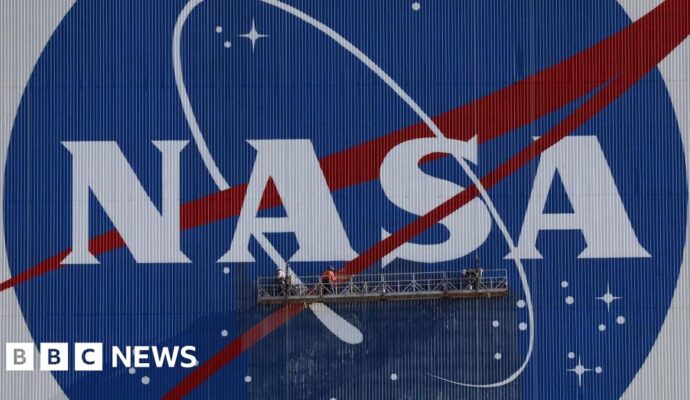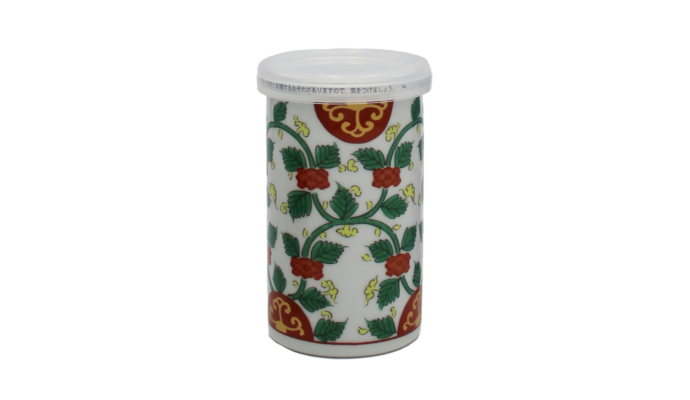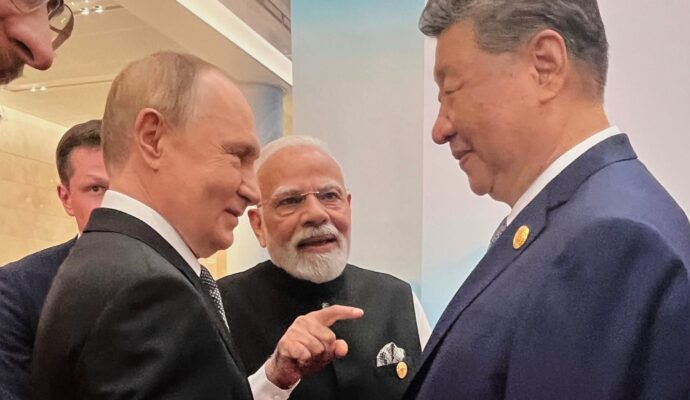Unlock the White House Watch newsletter for free
Your guide to what Trump’s second term means for Washington, business and the world
South Koreans arrested by US authorities are due to be repatriated on Thursday, after their flight was delayed by a row over whether they should wear handcuffs and an offer from Donald Trump that the workers at the centre of an immigration raid be allowed to stay.
The workers from the Hyundai-LG battery plant in Georgia had been scheduled to leave on Wednesday on a plane chartered by South Korea.
But the flight was delayed over whether they should wear handcuffs as they were transported to the airport in Atlanta, South Korean President Lee Jae Myung said at a press conference in Seoul on Thursday. The chartered flight is now expected to depart Atlanta later on Thursday.
“The US wanted to handcuff our workers on their way to the airport, but we insisted that it should not be that way,” said Lee, adding that the flight was further delayed after “Trump’s order that those who don’t want to go back don’t have to”.
President Trump told US officials to “encourage” the workers arrested at the Georgia plant to continue working in the country and help train Americans, according to South Korean officials cited by the state-owned news agency Yonhap.
The decision not to handcuff the workers reflected the “deep bond” forged between Trump and South Korea President Lee Jae Myung at a summit in Washington last month, the officials told Yonhap.
Of the workers due to be transported to Seoul, 330 — among them 316 Koreans, 10 Chinese, three Japanese and one Indonesian national, according to Yonhap — chose to board the flight, with one South Korean choosing to remain in the US, they added.
The workers were arrested during a raid last week on the battery plant, a joint venture between Korean conglomerates Hyundai and LG. US Immigration and Customs Enforcement later released a video of workers in yellow vests shackled at the ankles, wrists and waist.
Secretary of state Marco Rubio and his South Korean counterpart Cho Hyun had met on Wednesday.
After the talks, Cho said that Seoul had “secured assurances that they will face no problems re-entering the United States in the future to work”.
Cho added that he and Rubio had agreed to form a working group to explore the establishment of a working visa programme for South Korean nationals.
Korean companies are pouring tens of billions of dollars into building advanced manufacturing facilities in the US to produce chips, batteries and electric vehicles, with the bulk of the investment being made in Republican-majority states in the south and south-east.
Lee said that Korean companies expanding in the US “are dismayed by the situation”, and would be “more hesitant” about investing more in the country.
“Our workers are not there for permanent stay — they are needed to install equipment because there are no US workers [with the necessary skills] there,” said Lee. “This will have a significant impact on our investments in the US going forward.”
Trump wrote in a social media post following the raid that he encouraged foreign companies investing in the US to “LEGALLY bring your very smart people, with great technical talent, to build World Class products”.
Additional reporting by Song Jung-a in Seoul


